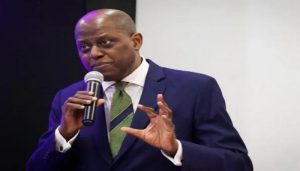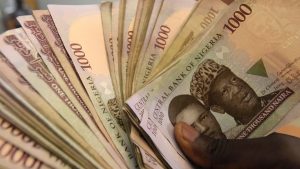
By David Akinmola
Nigeria’s foreign exchange market is in turmoil once again as Bureau De Change (BDC) operators face an existential crisis following the Central Bank of Nigeria’s (CBN) decision to halt direct dollar sales to them.
The move, which the apex bank said is part of its ongoing efforts to unify exchange rates and curb speculative trading, has sent shockwaves across the retail forex segment, leaving thousands of traders scrambling for survival.
Across major cities such as Lagos, Abuja, Kano, and Port Harcourt, BDC operators lament that the new policy has effectively paralysed their business operations, forcing many to shut down or operate in the shadows of the parallel market.
When The Guardian visited parts of Lagos Island and Allen Avenue, once bustling forex hubs, several currency traders were seen idling around in frustration. “The market is dead,” said one trader who identified himself as Musa. “Before now, we used to buy dollars directly from the CBN at an approved rate and sell to travellers and small businesses. But since they stopped supplying us, we have no access to forex, and customers are disappearing.”
The CBN, under its new foreign exchange management framework, has argued that dollar allocations to BDCs were being abused, with funds often diverted for speculative and non-official uses.
The bank insists that the policy shift will channel more foreign exchange through official deposit money banks, thereby promoting transparency and stabilising the naira.
However, stakeholders argue that the decision has deepened liquidity constraints in the retail forex market and pushed more activity underground, worsening volatility in the naira’s value.
As of Friday, the naira traded around ₦1,720 to the dollar at the parallel market, compared with about ₦1,600/$ a week earlier, reflecting the growing scarcity of foreign currency among informal traders.
The President of the Association of Bureau De Change Operators of Nigeria (ABCON), Aminu Gwadabe, described the situation as unsustainable, warning that cutting off BDCs from the supply chain could create distortions that undermine the CBN’s own stabilisation objectives.
“The retail end of the forex market is crucial for price discovery, inclusion, and market transparency,” Gwadabe said. “When you eliminate BDCs from the formal process, you only strengthen the parallel market and weaken confidence in the system.”
He noted that BDCs play a vital role in providing forex access to travellers, SMEs, and households, sectors that are often underserved by commercial banks. According to him, a balanced regulatory model that allows licensed operators limited access to forex at market-reflective rates would enhance efficiency without fuelling speculation.
Analysts also warn that the CBN’s decision could have ripple effects on employment and small business financing. With over 5,000 licensed BDCs across Nigeria and thousands more informal traders relying on the sector, the policy threatens jobs and livelihoods amid already high unemployment and inflation rates.
Economic experts say the move may achieve short-term exchange rate stability but could constrain liquidity in the longer term if not complemented by measures to boost forex inflows.
The Chief Executive Officer of the Centre for the Promotion of Private Enterprise (CPPE),Dr. Muda Yusuf, said while the CBN’s reform agenda is laudable, the approach must balance discipline with inclusiveness.
“The objective of sanitising the forex market is understandable, but it must not come at the cost of strangulating legitimate operators,” Yusuf said. “BDC operators are important players in forex distribution, and rather than cutting them off entirely, the CBN should regulate and integrate them into the market-driven structure.”
The development comes amid sustained pressure on Nigeria’s foreign reserves, which have fallen in recent months due to declining oil receipts and lower portfolio inflows. Market watchers say that unless the CBN introduces a mechanism to widen access to forex, demand pressure will continue to build on the parallel market.
Meanwhile, several small business owners who rely on BDCs for foreign exchange to import raw materials and pay for services abroad have decried the new reality.
“We can’t get dollars at the banks because of documentation delays and bureaucracy,” said Chioma, an importer of fashion accessories in Lagos. “BDC traders were our only quick option. Now, everything is at a standstill. Prices are rising daily.”
With inflation already above 30 per cent and consumer purchasing power eroding, economists fear that further disruptions in forex supply could compound the hardship facing households and businesses.
While the CBN has pledged to sustain its reforms to strengthen the naira and attract foreign investors, the immediate impact on retail forex traders remains dire. For many BDC operators, survival now depends on whether the apex bank will reconsider its stance or provide an alternative framework for their participation in the new forex regime.
“We just need clarity and inclusion,” another trader said. “Without that, this business that has fed families for decades may vanish completely.”






